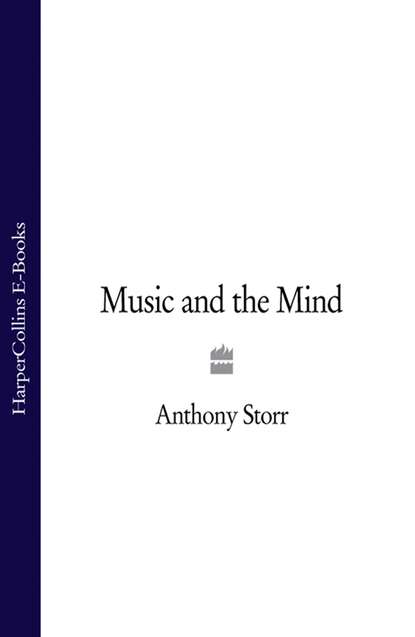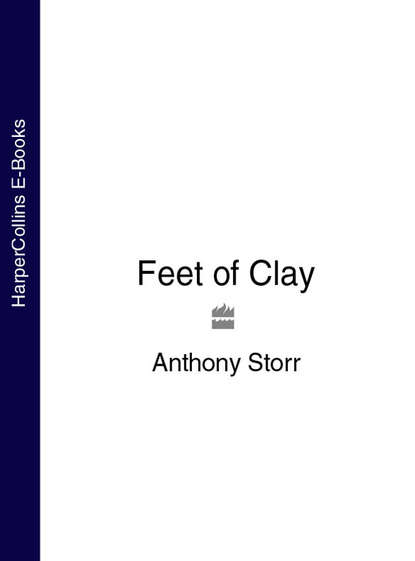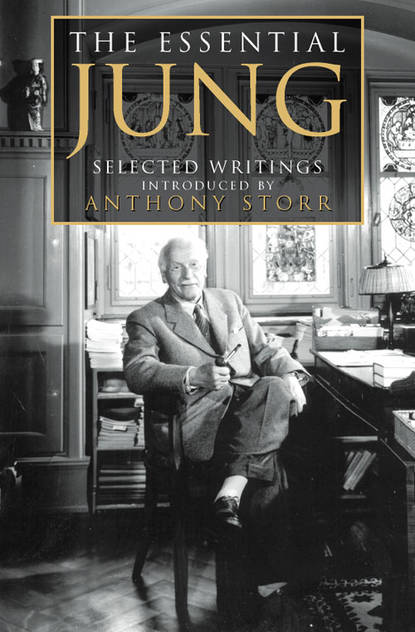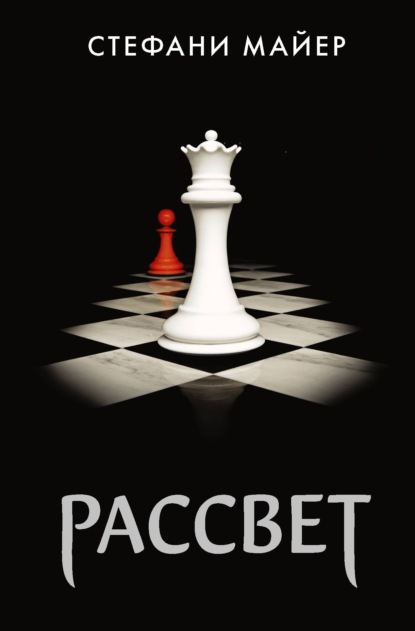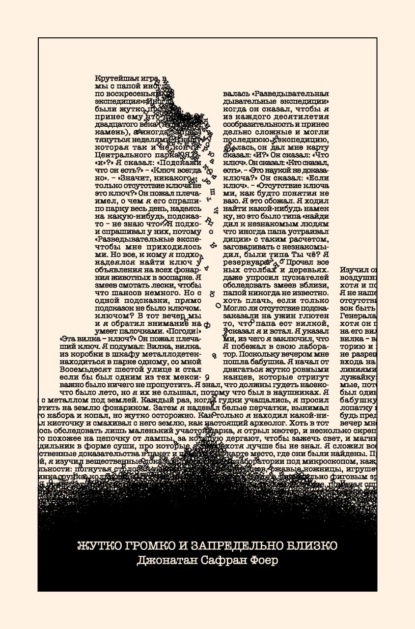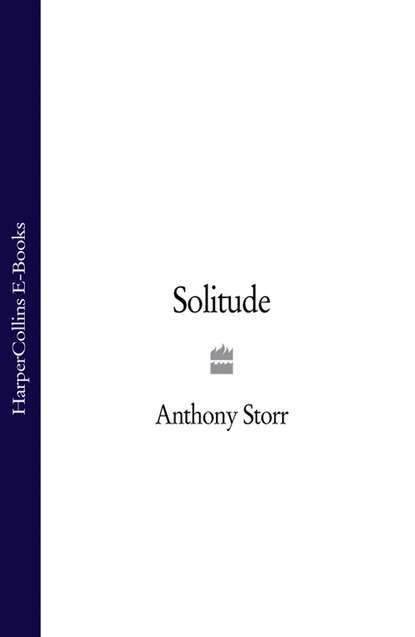
Текст
отзывы: 0 | рейтинг: 0
Полная версия
Полная версия
Solitude
Anthony Storr
In this brilliant and acclaimed book, the eminent psychiatrist Dr Anthony Storr challenges the widely held view that success in personal relationships is the only key to happiness.He argues persuasively that we pay far too little attention to some of the other great satisfactions of life – work and creativity. In a series of skilful biographical sketches, among them Beethoven, Henry James, Goya, Wittgenstein, Kipling and Beatrix Potter, he demonstrates how many of the creative geniuses of our civilisation have been solitary, by temperament of circumstance, and how the capacity to be alone is, even for those who are not creative, a sign of maturity.'This book brings excellent news for those who, whatever their reasons for doing so, live alone… It is heartening to find a psychiatrist of Dr Storr's eminence diverging from the received wisdom'.ANITA BROOKNER,' Spectator''This is a short book, but so rich in ideas, and presented with such a telling combination of gentleness and authority, that it is also exceptionally absorbing and thought-provoking'.CLAIRE TOMALIN,' Observer''Storr is an incapable of writing an uninteresting paragraph'.NORMAN STONE,' Sunday Times''This is an important, even revolutionary book. If it saves naturally non-sociable people from anxiety about ‘not belonging’ and enables them to come to terms with their solitude it will have done a notable human service'.ERIC CHRISTIANSEN,' Independent'
ANTHONY STORR
SOLITUDE
Copyright (#ulink_94281ec9-9008-59e4-8f85-d468dc00cca4)
HarperCollinsPublishers Ltd.
1 London Bridge Street,
London SE1 9GF
www.harpercollins.co.uk (http://www.harpercollins.co.uk)
This edition 1997
Copyright © Anthony Storr 1988
Anthony Storr asserts the moral right to be identified as the author of this work
All rights reserved under International and Pan-American Copyright Conventions. By payment of the required fees, you have been granted the non-exclusive, non-transferable right to access and read the text of this e-book on-screen. No part of this text may be reproduced, transmitted, downloaded, decompiled, reverse engineered, or stored in or introduced into any information storage and retrieval system, in any form or by any means, whether electronic or mechanical, now known or hereinafter invented, without the express written permission of HarperCollins e-books
HarperCollinsPublishers has made every reasonable effort to ensure that any picture content and written content in this ebook has been included or removed in accordance with the contractual and technological constraints in operation at the time of publication
Source ISBN: 9780006543497
Ebook Edition © MAY 2018 ISBN: 9780007385669
Version: 2018-07-09
Contents
Cover (#uce3a1a3c-0c38-545b-bfd9-f70606836f3a)
Title Page (#uaa1ff5f8-7b1e-5ff1-b718-b21e1ff99739)
Copyright (#ulink_be86f805-60d1-59ef-a868-ec78a2a6f01d)
Introduction (#ulink_f898acaf-8b8a-56cd-9454-4b207f604b61)
1 – The Significance of Human Relationships (#ulink_e67119a3-97cb-5c1a-b5fe-c8daf2d20cfe)
2 – The Capacity to be Alone (#ulink_437a7a24-1000-518c-ba46-c6b52eb83db2)
3 – The Uses of Solitude (#ulink_fbe25a08-bc6a-5a1a-824c-c76a52f02f04)
4 – Enforced Solitude (#ulink_766808de-c0bf-5470-9cce-076bf6c20a3f)
5 – The Hunger of Imagination (#litres_trial_promo)
6 – The Significance of the Individual (#litres_trial_promo)
7 – Solitude and Temperament (#litres_trial_promo)
8 – Separation, Isolation, and the Growth of Imagination (#litres_trial_promo)
9 – Bereavement, Depression and Repair (#litres_trial_promo)
10 – The Search for Coherence (#litres_trial_promo)
11 – The Third Period (#litres_trial_promo)
12 – The Desire and Pursuit of the Whole (#litres_trial_promo)
References (#litres_trial_promo)
Epigraphs (#litres_trial_promo)
Index (#litres_trial_promo)
Acknowledgements (#litres_trial_promo)
About the Author (#litres_trial_promo)
Also by the Author (#litres_trial_promo)
About the Publisher (#litres_trial_promo)
Introduction (#ulink_f71db904-4cda-593b-b24e-aa36cffdd79d)
‘Conversation enriches the understanding, but solitude is the school of genius; and the uniformity of a work denotes the hand of a single artist.’
Edward Gibbon
Gibbon is surely right. The majority of poets, novelists, composers, and, to a lesser extent, of painters and sculptors, are bound to spend a great deal of their time alone, as Gibbon himself did. Current wisdom, especially that propagated by the various schools of psychoanalysis, assumes that man is a social being who needs the companionship and affection of other human beings from cradle to grave. It is widely believed that interpersonal relationships of an intimate kind are the chief, if not the only, source of human happiness. Yet the lives of creative individuals often seem to run counter to this assumption. For example, many of the world’s greatest thinkers have not reared families or formed close personal ties. This is true of Descartes, Newton, Locke, Pascal, Spinoza, Kant, Leibniz, Schopenhauer, Nietzsche, Kierkegaard and Wittgenstein. Some of these men of genius had transient affairs with other men or women: others, like Newton, remained celibate. But none of them married, and most lived alone for the greater part of their lives.
Creative talent of a major kind is not widely bestowed. Those who possess it are often regarded with awe and envy because of their gifts. They also tend to be thought of as peculiar; odd human beings who do not share the pains and pleasures of the average person. Does this difference from the average imply abnormality in the sense of psychopathology? More particularly, is the predilection of the creative person for solitude evidence of some inability to make close relationships?
It is not difficult to point to examples of men and women of genius whose interpersonal relationships have been stormy, and whose personalities have been grossly disturbed by mental illness, alcoholism, or drug abuse. Because of this, it is easy to assume that creative talent, mental instability, and a deficient capacity for making satisfying personal relationships are closely linked. Regarded from this point of view, the possession of creative talent appears as a doubtful blessing: a Janus-faced endowment, which may bring fame and fortune, but which is incompatible with what, for the ordinary person, constitutes happiness.
The belief that men and women of genius are necessarily unstable has been widely held, especially since the time of Freud. It cannot possibly be the whole truth. Not all creative people are notably disturbed; not all solitary people are unhappy. Gibbon, after his initial disappointment in love, enjoyed a particularly happy and equable life which anyone might envy. As he wrote himself:
When I contemplate the common lot of mortality, I must acknowledge that I have drawn a high prize in the lottery of life … I am endowed with a cheerful temper, a moderate sensibility, and a natural disposition to repose rather than to activity: some mischievous appetites and habits have perhaps been corrected by philosophy or time. The love of study, a passion which derives fresh vigour from enjoyment, supplies each day, each hour, with a perpetual source of independent and rational pleasure; and I am not sensible of any decay of the mental faculties’ According to the scale of Switzerland, I am a rich man; and I am indeed rich, since my income is superior to my expense, and my expense is equal to my wishes. My friend Lord Sheffield has kindly relieved me from the cares to which my taste and temper are most adverse: shall I add, that since the failure of my first wishes, I have never entertained any serious thoughts of a matrimonial connection?
(#litres_trial_promo)
As Lytton Strachey wrote in his essay on Gibbon:
Happiness is the word that immediately rises to the mind at the thought of Edward Gibbon: and happiness in its widest connotation – including good fortune as well as enjoyment.
(#litres_trial_promo)
Some might allege that Gibbon, by renouncing his love for Suzanne Curchod at the behest of his father, had cut himself off from the chief source of human happiness, and should be labelled pathological on this account. Sexual love may have played little part in Gibbon’s life, but Gibbon’s other relationships were rewarding. Although the immense labour of composing The Decline and Fall of the Roman Empire necessitated long periods of solitary study and writing, Gibbon was equally happy in company. When he was in London, he led an active social life, was a member of Boodle’s, White’s, and Brook’s, as well as of The Literary Club, and was appreciated everywhere as a fascinating talker. In addition, he displayed a touching affection toward his aunt, Mrs Porten, who had largely been responsible for his upbringing, and a gift for friendship which was most clearly manifest in his long and close relationship with Lord Sheffield. Gibbon occasionally laments his solitary state in his correspondence, and toyed with the idea of adopting a female cousin. But the prospect of matrimony was a daydream which he soon dismissed.
When I have painted in my fancy all the probable consequences of such an union, I have started from my dream, rejoiced in my escape, and ejaculated a thanksgiving that I was still in possession of my natural freedom.
(#litres_trial_promo)
Modern insistence that true happiness can only be found in intimate attachments, more especially in sexual fulfilment, does not allow a place for characters like Gibbon. It is clear that, although his friendships were many, his chief source of self-esteem and of pleasure was his work, as the famous sentence which closes his autobiography makes plain.
In old age, the consolation of hope is reserved for the tenderness of parents, who commence a new life in their children; the faith of enthusiasts who sing Hallelujahs above the clouds, and the vanity of authors who presume the immortality of their name and writings.
(#litres_trial_promo)
Gibbon was a classical artist whose style embodies an attitude toward the follies and extravagances of mankind which is both ironic and detached. Romantics, like Rousseau and Coleridge, detested him for this reason. In his writings, Gibbon’s human sympathies certainly appear as limited: sex is generally treated as a subject of amusement; religion dismissed as superstition. But the immensity of the task he set himself demanded such a stance. To impose order upon the turmoil and confusion of so long a period of history required an Olympian perspective. Gibbon’s humanity did not, and could not, manifest itself in his great history; but the warmth of his feelings towards his friends and the affection which they showed him demonstrate that the man himself possessed a human heart. By most of the standards adopted in the past, Gibbon would be rated as exceptionally well-balanced. It is only since Freud advanced the notion that heterosexual fulfilment is the sine qua non of mental health that anyone would question Gibbon’s status as a more than commonly happy and successful human being.
Anthony Storr
In this brilliant and acclaimed book, the eminent psychiatrist Dr Anthony Storr challenges the widely held view that success in personal relationships is the only key to happiness.He argues persuasively that we pay far too little attention to some of the other great satisfactions of life – work and creativity. In a series of skilful biographical sketches, among them Beethoven, Henry James, Goya, Wittgenstein, Kipling and Beatrix Potter, he demonstrates how many of the creative geniuses of our civilisation have been solitary, by temperament of circumstance, and how the capacity to be alone is, even for those who are not creative, a sign of maturity.'This book brings excellent news for those who, whatever their reasons for doing so, live alone… It is heartening to find a psychiatrist of Dr Storr's eminence diverging from the received wisdom'.ANITA BROOKNER,' Spectator''This is a short book, but so rich in ideas, and presented with such a telling combination of gentleness and authority, that it is also exceptionally absorbing and thought-provoking'.CLAIRE TOMALIN,' Observer''Storr is an incapable of writing an uninteresting paragraph'.NORMAN STONE,' Sunday Times''This is an important, even revolutionary book. If it saves naturally non-sociable people from anxiety about ‘not belonging’ and enables them to come to terms with their solitude it will have done a notable human service'.ERIC CHRISTIANSEN,' Independent'
ANTHONY STORR
SOLITUDE
Copyright (#ulink_94281ec9-9008-59e4-8f85-d468dc00cca4)
HarperCollinsPublishers Ltd.
1 London Bridge Street,
London SE1 9GF
www.harpercollins.co.uk (http://www.harpercollins.co.uk)
This edition 1997
Copyright © Anthony Storr 1988
Anthony Storr asserts the moral right to be identified as the author of this work
All rights reserved under International and Pan-American Copyright Conventions. By payment of the required fees, you have been granted the non-exclusive, non-transferable right to access and read the text of this e-book on-screen. No part of this text may be reproduced, transmitted, downloaded, decompiled, reverse engineered, or stored in or introduced into any information storage and retrieval system, in any form or by any means, whether electronic or mechanical, now known or hereinafter invented, without the express written permission of HarperCollins e-books
HarperCollinsPublishers has made every reasonable effort to ensure that any picture content and written content in this ebook has been included or removed in accordance with the contractual and technological constraints in operation at the time of publication
Source ISBN: 9780006543497
Ebook Edition © MAY 2018 ISBN: 9780007385669
Version: 2018-07-09
Contents
Cover (#uce3a1a3c-0c38-545b-bfd9-f70606836f3a)
Title Page (#uaa1ff5f8-7b1e-5ff1-b718-b21e1ff99739)
Copyright (#ulink_be86f805-60d1-59ef-a868-ec78a2a6f01d)
Introduction (#ulink_f898acaf-8b8a-56cd-9454-4b207f604b61)
1 – The Significance of Human Relationships (#ulink_e67119a3-97cb-5c1a-b5fe-c8daf2d20cfe)
2 – The Capacity to be Alone (#ulink_437a7a24-1000-518c-ba46-c6b52eb83db2)
3 – The Uses of Solitude (#ulink_fbe25a08-bc6a-5a1a-824c-c76a52f02f04)
4 – Enforced Solitude (#ulink_766808de-c0bf-5470-9cce-076bf6c20a3f)
5 – The Hunger of Imagination (#litres_trial_promo)
6 – The Significance of the Individual (#litres_trial_promo)
7 – Solitude and Temperament (#litres_trial_promo)
8 – Separation, Isolation, and the Growth of Imagination (#litres_trial_promo)
9 – Bereavement, Depression and Repair (#litres_trial_promo)
10 – The Search for Coherence (#litres_trial_promo)
11 – The Third Period (#litres_trial_promo)
12 – The Desire and Pursuit of the Whole (#litres_trial_promo)
References (#litres_trial_promo)
Epigraphs (#litres_trial_promo)
Index (#litres_trial_promo)
Acknowledgements (#litres_trial_promo)
About the Author (#litres_trial_promo)
Also by the Author (#litres_trial_promo)
About the Publisher (#litres_trial_promo)
Introduction (#ulink_f71db904-4cda-593b-b24e-aa36cffdd79d)
‘Conversation enriches the understanding, but solitude is the school of genius; and the uniformity of a work denotes the hand of a single artist.’
Edward Gibbon
Gibbon is surely right. The majority of poets, novelists, composers, and, to a lesser extent, of painters and sculptors, are bound to spend a great deal of their time alone, as Gibbon himself did. Current wisdom, especially that propagated by the various schools of psychoanalysis, assumes that man is a social being who needs the companionship and affection of other human beings from cradle to grave. It is widely believed that interpersonal relationships of an intimate kind are the chief, if not the only, source of human happiness. Yet the lives of creative individuals often seem to run counter to this assumption. For example, many of the world’s greatest thinkers have not reared families or formed close personal ties. This is true of Descartes, Newton, Locke, Pascal, Spinoza, Kant, Leibniz, Schopenhauer, Nietzsche, Kierkegaard and Wittgenstein. Some of these men of genius had transient affairs with other men or women: others, like Newton, remained celibate. But none of them married, and most lived alone for the greater part of their lives.
Creative talent of a major kind is not widely bestowed. Those who possess it are often regarded with awe and envy because of their gifts. They also tend to be thought of as peculiar; odd human beings who do not share the pains and pleasures of the average person. Does this difference from the average imply abnormality in the sense of psychopathology? More particularly, is the predilection of the creative person for solitude evidence of some inability to make close relationships?
It is not difficult to point to examples of men and women of genius whose interpersonal relationships have been stormy, and whose personalities have been grossly disturbed by mental illness, alcoholism, or drug abuse. Because of this, it is easy to assume that creative talent, mental instability, and a deficient capacity for making satisfying personal relationships are closely linked. Regarded from this point of view, the possession of creative talent appears as a doubtful blessing: a Janus-faced endowment, which may bring fame and fortune, but which is incompatible with what, for the ordinary person, constitutes happiness.
The belief that men and women of genius are necessarily unstable has been widely held, especially since the time of Freud. It cannot possibly be the whole truth. Not all creative people are notably disturbed; not all solitary people are unhappy. Gibbon, after his initial disappointment in love, enjoyed a particularly happy and equable life which anyone might envy. As he wrote himself:
When I contemplate the common lot of mortality, I must acknowledge that I have drawn a high prize in the lottery of life … I am endowed with a cheerful temper, a moderate sensibility, and a natural disposition to repose rather than to activity: some mischievous appetites and habits have perhaps been corrected by philosophy or time. The love of study, a passion which derives fresh vigour from enjoyment, supplies each day, each hour, with a perpetual source of independent and rational pleasure; and I am not sensible of any decay of the mental faculties’ According to the scale of Switzerland, I am a rich man; and I am indeed rich, since my income is superior to my expense, and my expense is equal to my wishes. My friend Lord Sheffield has kindly relieved me from the cares to which my taste and temper are most adverse: shall I add, that since the failure of my first wishes, I have never entertained any serious thoughts of a matrimonial connection?
(#litres_trial_promo)
As Lytton Strachey wrote in his essay on Gibbon:
Happiness is the word that immediately rises to the mind at the thought of Edward Gibbon: and happiness in its widest connotation – including good fortune as well as enjoyment.
(#litres_trial_promo)
Some might allege that Gibbon, by renouncing his love for Suzanne Curchod at the behest of his father, had cut himself off from the chief source of human happiness, and should be labelled pathological on this account. Sexual love may have played little part in Gibbon’s life, but Gibbon’s other relationships were rewarding. Although the immense labour of composing The Decline and Fall of the Roman Empire necessitated long periods of solitary study and writing, Gibbon was equally happy in company. When he was in London, he led an active social life, was a member of Boodle’s, White’s, and Brook’s, as well as of The Literary Club, and was appreciated everywhere as a fascinating talker. In addition, he displayed a touching affection toward his aunt, Mrs Porten, who had largely been responsible for his upbringing, and a gift for friendship which was most clearly manifest in his long and close relationship with Lord Sheffield. Gibbon occasionally laments his solitary state in his correspondence, and toyed with the idea of adopting a female cousin. But the prospect of matrimony was a daydream which he soon dismissed.
When I have painted in my fancy all the probable consequences of such an union, I have started from my dream, rejoiced in my escape, and ejaculated a thanksgiving that I was still in possession of my natural freedom.
(#litres_trial_promo)
Modern insistence that true happiness can only be found in intimate attachments, more especially in sexual fulfilment, does not allow a place for characters like Gibbon. It is clear that, although his friendships were many, his chief source of self-esteem and of pleasure was his work, as the famous sentence which closes his autobiography makes plain.
In old age, the consolation of hope is reserved for the tenderness of parents, who commence a new life in their children; the faith of enthusiasts who sing Hallelujahs above the clouds, and the vanity of authors who presume the immortality of their name and writings.
(#litres_trial_promo)
Gibbon was a classical artist whose style embodies an attitude toward the follies and extravagances of mankind which is both ironic and detached. Romantics, like Rousseau and Coleridge, detested him for this reason. In his writings, Gibbon’s human sympathies certainly appear as limited: sex is generally treated as a subject of amusement; religion dismissed as superstition. But the immensity of the task he set himself demanded such a stance. To impose order upon the turmoil and confusion of so long a period of history required an Olympian perspective. Gibbon’s humanity did not, and could not, manifest itself in his great history; but the warmth of his feelings towards his friends and the affection which they showed him demonstrate that the man himself possessed a human heart. By most of the standards adopted in the past, Gibbon would be rated as exceptionally well-balanced. It is only since Freud advanced the notion that heterosexual fulfilment is the sine qua non of mental health that anyone would question Gibbon’s status as a more than commonly happy and successful human being.
Другие книги автора:
Популярные книги





